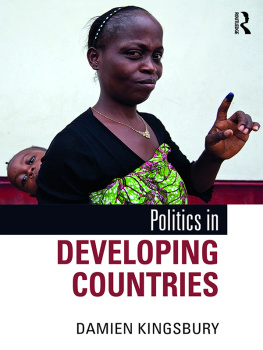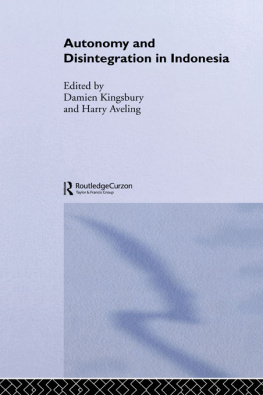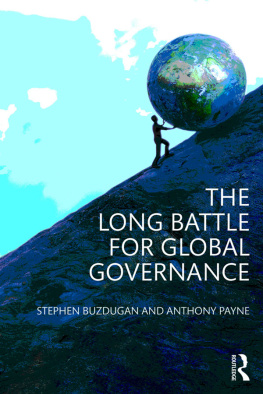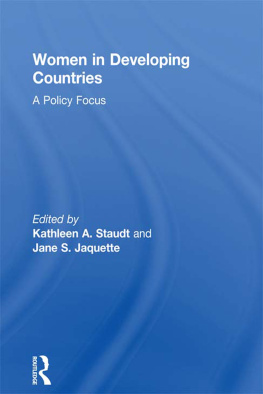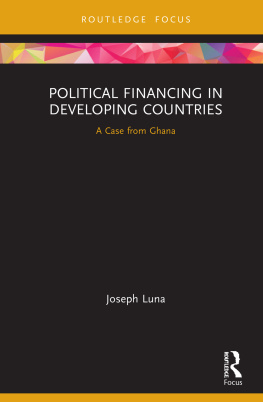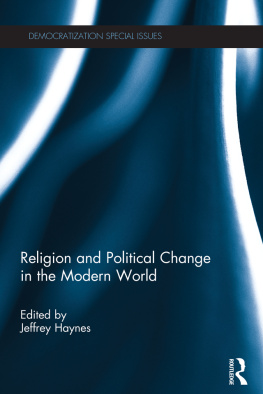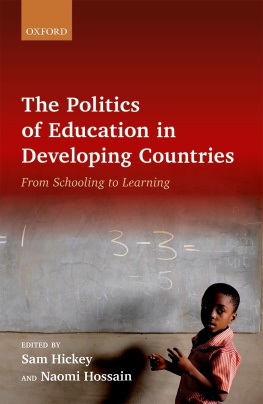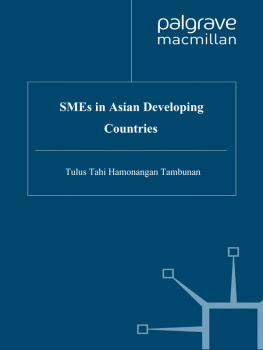Politics in Developing Countries
Politics in Developing Countries provides a clear and reader-friendly introduction to the key factors and themes that shape political processes in developing countries. Achieving development outcomes such as reducing poverty and inequality is only possible through efficient governance, well-planned policies and careful allocation of resources, but often politics in developing countries has been identified with mismanagement, corruption, conflict and repression of dissent. This book assesses the politics of developing countries in the period since decolonisation, focusing on the ways in which states have or have not worked to the advancement of their citizens interests. Key topics include:
- Colonialism and its legacy
- Ethnicity and nation building
- Governance, corruption and the role of the state
- Poverty and the political economy of development
- Aid and outside influence.
Drawing on a range of case studies from around the world, Politics in Developing Countries looks at the consistencies and variations between developing countries, examining why some have forestalled political change by liberalising their economies, and others have actively stifled calls for change. Wide-ranging and engagingly written, this introductory textbook is perfect for students of politics and international development, as well as for those with a general interest in the challenges faced by countries in the Global South.
Damien Kingsbury holds a Personal Chair in the Faculty of Arts and Education, is Professor of International Politics in the School of Humanities and Social Sciences and is Director of the Masters of International and Community Development course at Deakin University, Australia.
First published 2019
by Routledge
2 Park Square, Milton Park, Abingdon, Oxon OX14 4RN
and by Routledge
52 Vanderbilt Avenue, New York, NY 10017
Routledge is an imprint of the Taylor & Francis Group, an informa business
2019 Damien Kingsbury
The right of Damien Kingsbury to be identified as author of this work has been asserted by him in accordance with sections 77 and 78 of the Copyright, Designs and Patents Act 1988.
All rights reserved. No part of this book may be reprinted or reproduced or utilised in any form or by any electronic, mechanical, or other means, now known or hereafter invented, including photocopying and recording, or in any information storage or retrieval system, without permission in writing from the publishers.
Trademark notice: Product or corporate names may be trademarks or registered trademarks, and are used only for identification and explanation without intent to infringe.
British Library Cataloguing in Publication Data
A catalogue record for this book is available from the British Library
Library of Congress Cataloging-in-Publication Data
Names: Kingsbury, Damien, author.
Title: Politics in developing countries / Damien Kingsbury.
Description: Abingdon, Oxon ; New York, NY : Routledge, 2019. | Includes bibliographical references and index.
Identifiers: LCCN 2018042220 (print) | LCCN 2018049572 (ebook) | ISBN 9781315099453 (eBook) | ISBN 9781138297173 (hardback) | ISBN 9781138297210 (pbk.) | ISBN 9781315099453 (ebk.)
Subjects: LCSH: Developing countries--Politics and government.
Classification: LCC JF60 (ebook) | LCC JF60 .K57 2019 (print) | DDC 320.9172/4dc23LC record available at https://lccn.loc.gov/2018042220
ISBN: 978-1-138-29717-3 (hbk)
ISBN: 978-1-138-29721-0 (pbk)
ISBN: 978-1-315-09945-3 (ebk)
For Rae, with whom I have shared many adventures, from mountains, jungles and an assortment of semi-functioning towns and cities, to hill tracts, deserts and refugee camps, with many more to come. Thank you for being my steady moral compass, companion and love.
I would like to acknowledge the support of Deakin University, and the collegial and creative research environment it has created. I would also like to acknowledge the fortnightly questioning by the Australian Broadcasting Corporations Jon Faine and his colleagues I have been privileged to be given the opportunity to respond to, which has, since 2003, required me to think more widely, deeply and necessarily quickly about global politics than my comfort zone would ordinarily allow.
I would especially like to thank my academic mentor, Professor John McKay, for his wise comments, criticisms and suggestions on a draft of the manuscript, as well as those of two anonymous reviewers. I would also like to thank my former colleague from The Age newspaper, Ken Haley, for his editing of a draft of the manuscript. All errors of fact, interpretation or style remain, however, entirely my own.
Some parts of this book were, in a different form, previously published in media outlets (in which instances the author retains copyright).
There is a map on the wall of the room in which this book was written: it is of Asia, ranging from northern and eastern Europe, down to north-east Africa and across the Middle East and the then Union of Soviet Socialist Republics (USSR) to Southeast Asia and Japan. It reflected a rather inclusive understanding of Asia, a term which has always said more about the beholder than the beholden.
Maps are useful, not just for locating places in relation to each other but for the stories they tell, of what exists and why, how things change and, again, why and how things might evolve. Judging by the obvious historical changes, this map looks to have been printed in 1950. It tells a story of a large swathe of the world that, in the middle of the 20th century, looks vastly different unimaginable, almost to that of the first quarter of the 21st century.
The map tells a story of change, in many respects economic but, in more absolute terms, a story of political change. Most of the countries identified on this map did not exist some ten years previously (five more were to come into existence after that time), and those that did, mostly existed under very different political circumstances.
Most of those countries on this map, and still the majority in the world, are developing countries. Such countries frequently have less than positive political records, with varying levels of political participation, representation, accountability, transparency and effectiveness, ranging from the casually inept through to the sometimes brutally authoritarian.
As the political theorist Guillermo ODonnell would remind us, positive political performance in his words democratic consolidation is not a given (ODonnell 1996). Many countries never achieve that state and those that do remain vulnerable to compromise, decline, collapse or overthrow. Because some countries have been politically successful, that does not mean they will always be so, or that others will necessarily be. Politics is, therefore, a process of building and maintaining institutions: failure to engage in supporting such a project can, and often does, result in systemic failure.
This book is not about global politics, although its reach encompasses the globe: that is by circumstance rather than intent. Similarly, it does not intend to canvass the issues of developed i.e. the first wave of industrialised countries, sometimes classified as OECD countries, although it touches on some of them given that the OECD has acquired a broad and inclusive reach. Importantly, too, the politics of developing countries cannot be considered without also considering the impact and influence of developed countries, through colonialism, the effects of struggles for liberation and wars of independence; the shaping of the successor states to colonies; consequent economic, political and strategic relations; and the formation of global political and economic paradigms.

